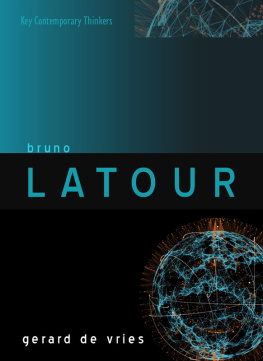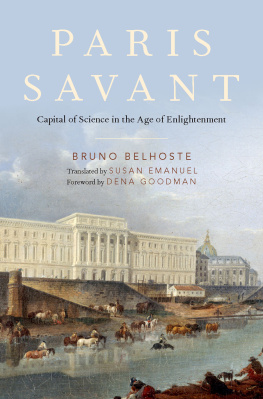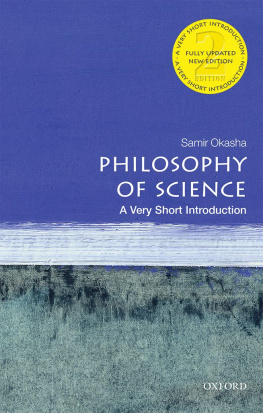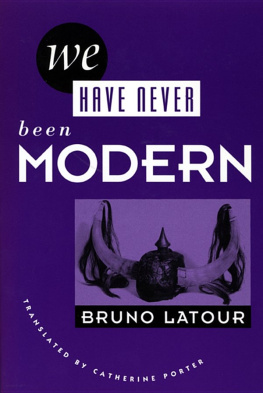
Series page
Key Contemporary Thinkers
- Lee Braver, Heidegger
- John Burgess, Kripke
- Claire Colebrook and Jason Maxwell, Agamben
- Jean-Pierre Couture, Sloterdijk
- Rosemary Cowan, Cornel West
- George Crowder, Isaiah Berlin
- Gareth Dale, Karl Polanyi
- Colin Davis, Levinas
- Oliver Davis, Jacques Rancire
- Gerard de Vries, Bruno Latour
- Reidar Andreas Due, Deleuze
- Edward Fullbrook and Kate Fullbrook, Simone de Beauvoir
- Andrew Gamble, Hayek
- Neil Gascoigne, Richard Rorty
- Nigel Gibson, Fanon
- Graeme Gilloch, Siegfried Kracauer
- Graeme Gilloch, Walter Benjamin
- Phillip Hansen, Hannah Arendt
- Sean Homer, Fredric Jameson
- Christina Howells, Derrida
- Simon Jarvis, Adorno
- Rachel Jones, Irigaray
- Sarah Kay, iek
- S. K. Keltner, Kristeva
- Valerie Kennedy, Edward Said
- Chandran Kukathas and Philip Pettit, Rawls
- Moya Lloyd, Judith Butler
- James McGilvray, Chomsky, 2nd Edition
- Lois McNay, Foucault
- Dermot Moran, Edmund Husserl
- Michael Moriarty, Roland Barthes
- Marie-Eve Morin, Jean-Luc Nancy
- Stephen Morton, Gayatri Spivak
- Timothy Murphy, Antonio Negri
- William Outhwaite, Habermas, 2nd Edition
- Kari Palonen, Quentin Skinner
- Ed Pluth, Badiou
- John Preston, Feyerabend
- Chris Rojek, Stuart Hall
- Severin Schroeder, Wittgenstein
- Anthony Paul Smith, Laruelle
- Dennis Smith, Zygmunt Bauman
- Felix Stalder, Manuel Castells
- Georgia Warnke, Gadamer
- Jonathan Wolff, Robert Nozick
- Christopher Zurn, Axel Honneth

Copyright page
Copyright Gerard de Vries 2016
The right of Gerard de Vries to be identified as Author of this Work has been asserted in accordance with the UK Copyright, Designs and Patents Act 1988.
First published in 2016 by Polity Press
Polity Press
65 Bridge Street
Cambridge CB2 1UR, UK
Polity Press
350 Main Street
Malden, MA 02148, USA
All rights reserved. Except for the quotation of short passages for the purpose of criticism and review, no part of this publication may be reproduced, stored in a retrieval system, or transmitted, in any form or by any means, electronic, mechanical, photocopying, recording or otherwise, without the prior permission of the publisher.
ISBN-13: 978-0-7456-5062-3 (hardback)
ISBN-13: 978-0-7456-5063-0 (paperback)
A catalogue record for this book is available from the British Library.
Library of Congress Cataloging-in-Publication Data
Names: Vries, Gerard de, 1948
Title: Bruno Latour / Gerard de Vries.
Description: Cambridge, UK ; Malden, MA : Polity Press, 2016. | Includes bibliographical references and index.
Identifiers: LCCN 2016001169| ISBN 9780745650623 (hardback : alk. paper) | ISBN 9780745650630 (pbk. : alk. paper)
Subjects: LCSH: Latour, Bruno. | ScienceSocial aspects. | Science and civilization. | SciencePhilosophy.
Classification: LCC Q175.46 .V75 2016 | DDC 303.48/3dc23 LC record available at http://lccn.loc.gov/201600116
Typeset in 10.5 on 12 pt Palatino
by Toppan Best-set Premedia Limited
Printed and bound in the UK by CPI Group (UK) Ltd, Croydon, CRO 4YY
The publisher has used its best endeavours to ensure that the URLs for external websites referred to in this book are correct and active at the time of going to press. However, the publisher has no responsibility for the websites and can make no guarantee that a site will remain live or that the content is or will remain appropriate.
Every effort has been made to trace all copyright holders, but if any have been inadvertently overlooked the publisher will be pleased to include any necessary credits in any subsequent reprint or edition.
For further information on Polity, visit our website:
politybooks.com
Preface
When men cannot observe, they don't have ideas; they have obsessions, V. S. Naipaul wrote. The modern philosophical tradition holds observation in high regard; nevertheless it is obsessed by a worldview that feeds off dualities between humans and nonhumans, nature and society, facts and values, science and politics. Bruno Latour wants us to observe better, with a finer resolution. To become more attentive, to redescribe the world we live in, and to better understand our current predicament, he introduced ethnography and comparative anthropology as vital methods for philosophy. Latour is an empirical philosopher.
This introduction to his work follows Latour in his footsteps, both as an ethnographer and as a philosopher. The light tone of much of Latour's writing may easily conceal its profundity. Latour takes issue with much of what we take for granted as intuitively evident. By following Latour's moves closely and by providing some background from science studies, philosophy and sociology, to show to what extent and in what sense Latour's work stands out against the tradition, I hope to ease access to what Latour claims to be a richer vocabulary to account for who we are and what we value, that is, a better, fairer common sense.
Latour is a prolific writer on an amazingly varied set of topics, so some selection was inevitable. To introduce his empirical work, Latour's studies on science, law and religion will be discussed in detail; they led to substantial philosophical innovations. Latour's philosophy his thoughts on science, on actor-network theory, cosmopolitics and his anthropology of the Moderns is introduced roughly in the order in which they took shape. But this is not an intellectual biography; the historical and intellectual context in which Latour's thoughts evolved is only touched upon. That also holds for the reception of his work. This is an introduction to Latour's philosophy; not to science studies as a discipline, nor to the work of those who have followed Latour, used his ideas, or thought they did.
To write about a living author is an unquiet affair. With the advantage of hindsight it becomes apparent that Latour's work has been driven by a coherent heuristic. But those who followed his work were often puzzled when he took his thoughts to new levels and new domains or when he introduced conceptual innovations. We met in the early 1980s and stayed in contact ever since. Time and again he forced me to rethink his position, as well as my own.
I want to thank Bruno Latour and my Dutch friends and colleagues Huub Dijstelbloem, Rob Hagendijk, Hans Harbers, Josta de Hoog, Noortje Marres and Annemiek Nelis for their comments on the draft of this book. I'm also very grateful to John Naughton for his comments and for helping me out with the subtleties of the English grammar. As always, my gratitude to Pauline extends far beyond her comments on my writing.
Abbreviations
For full bibliographical details see the References.
| AIME | An Inquiry into Modes of Existence An Anthropology of the Moderns |
| AR | Aramis or the Love of Technology |













